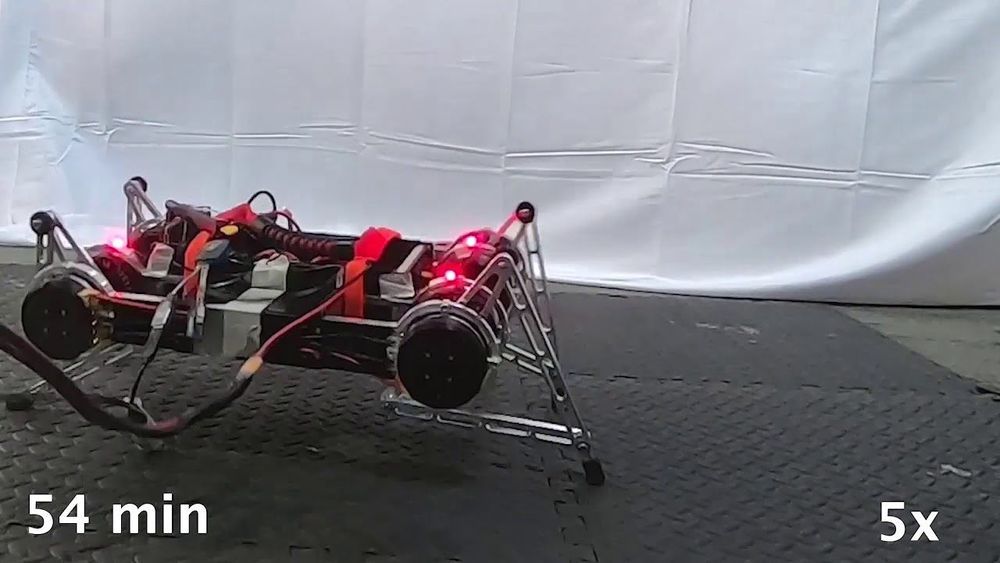Page 9211
Jan 14, 2019
This Chart Reveals Google’s True Dominance Over the Web
Posted by Steve Nichols in category: internet
https://paper.li/e-1437691924#/
Yes, it’s a given that Google dominates the search market — but the fact is, Google is probably even more dominant than you would have guessed.
Jan 14, 2019
Russia might Invest Billions into Bitcoin to Mitigate U.S Sanctions
Posted by Steve Nichols in categories: bitcoin, economics, government
https://paper.li/e-1437691924#/
Amidst various sanctions by the United States, Russia might buy Bitcoins in the Billions as a way to mitigate these sanctions.
According to Vladislav Ginko who is a lecturer at the Russian Presidential Academy of National Economy and Public Administration, the Russian government which sits on $466 Billion of reserves is planning to invest heavily into Bitcoin. He told Micky that he believes the government could start investing Billions in Bitcoin as early as next month which could potentially trigger a bull run.
Continue reading “Russia might Invest Billions into Bitcoin to Mitigate U.S Sanctions” »
Jan 14, 2019
Team finds how error and reward signals are organized within the cerebral cortex
Posted by Xavier Rosseel in categories: biotech/medical, neuroscience
Psychiatrists diagnose people with schizophrenia, ADHD, bipolar disorder and other mental illnesses by spending time with them, looking for the particular behavior symptoms of each. What follows can be a hit-or-miss series of medications and dosages until disruptive behaviors go away.
By deciphering the circuitry of the medial frontal cortex — an area beneath the top of the head — those diagnoses could become much more efficient and precise by allowing physicians to diagnose based on how neurons respond to a simple series of behavior tests.
A Vanderbilt University team recently described how error and reward signals are organized within the cerebral cortex, which is only as thick as a nickel. They say this information could also be significant in drug development by guiding medications to target receptors in particular layers of the cerebral cortex where they will be most effective.

Researchers at Google Brain and the University of California, Berkeley have developed an AI system that taught a quadrupedal robot how to walk from scratch.
Jan 14, 2019
Bio-Printers Are Churning out Living Fixes to Broken Spines
Posted by Klaus Baldauf in categories: 3D printing, bioprinting
A new study shows that 3D-printing a section of spinal cord, living cells and all, restored movement in injured rats.
Jan 14, 2019
Our galaxy is due for a catastrophic collision, study says
Posted by Michael Lance in category: space
(CNN) — While astronomers estimate that the Andromeda galaxy will collide with our own Milky Way galaxy 8 billion years from now, they now believe that another collision will happen even sooner.
The Large Magellanic Cloud will catastrophically collide with the Milky Way in 2 billion years, according to a study published this month in the Monthly Notices of the Royal Astronomical Society. The impact, which they believe is long overdue, has a chance of sending our solar system “hurtling through space.”
Our galaxy is orbited by smaller satellite galaxies, the kind of dance that can go on undisturbed for billions of years. Other times, things take a violent turn, and satellite galaxies can migrate toward the Milky Way until they collide and are gobbled up.
Continue reading “Our galaxy is due for a catastrophic collision, study says” »
Jan 14, 2019
UNITY Biotechnologies Selects a New Senolytic Candidate
Posted by Steve Hill in categories: biotech/medical, life extension
Another senolytic drug candidate has entered development at Unity Biotechnologies. The purpose of senolytics is to clear the body of harmful senescent cells, which accumulate with age and encourage age-related diseases to develop.
A new treatment for age-related diseases of the eye
Recently, UNITY Biotechnologies announced the selection of a new lead drug, UBX1967, with the goal of treating a range of age-related diseases of the eye. This is the second drug in the pipeline of this $677 million company. This drug is unique in the world of eye treatment; it targets and destroys senescent cells, making it a senolytic that targets one of the root causes of aging to treat disease.
Continue reading “UNITY Biotechnologies Selects a New Senolytic Candidate” »
Jan 14, 2019
This year we will start discovering more new biological molecules
Posted by Klaus Baldauf in categories: biological, genetics, neuroscience
2019 will be the year in which we discover molecules and properties that are as yet unknown to humans. The breadth of biology and the enormous flexibility of genetic material will provide us with an ideal platform to explore an effectively unlimited number of molecules for novel materials and solutions. We will ultimately leave behind hydrocarbons and truly enter the biological age.
Joshua Hoffman is cofounder and CEO of Zymergen
– Meet the companies fixing depression by stimulating neurons.
Jan 14, 2019
Transhumanist science will free women from their biological clocks
Posted by Zoltan Istvan in categories: biological, genetics, geopolitics, health, science, transhumanism
I’m excited to share my new article from Quartz on how science will make it safer and easier for a 50-year-old woman to have a child in 2028 than a 25-year-old woman today. #IVG and #DelayedFertilityAdvantage are game changers.
Women’s biological clocks drive human conception—and, in turn, human history.
Biology’s inflexible window of female fertility is generally agreed to be between the ages 18 and 35. Any older, and the risk of miscarrying, not getting pregnant at all, or bearing unhealthy children skyrockets. When the average lifespan for a woman in the Western world now hovers at around 80 years old, this means that less than 25% of her life can be spent easily (and safely) procreating.
Continue reading “Transhumanist science will free women from their biological clocks” »

















